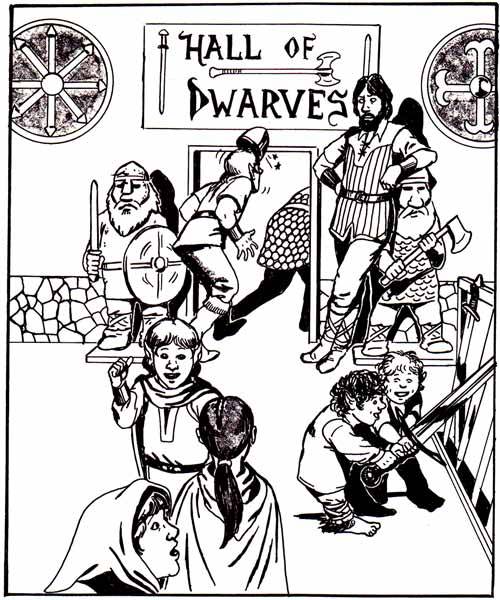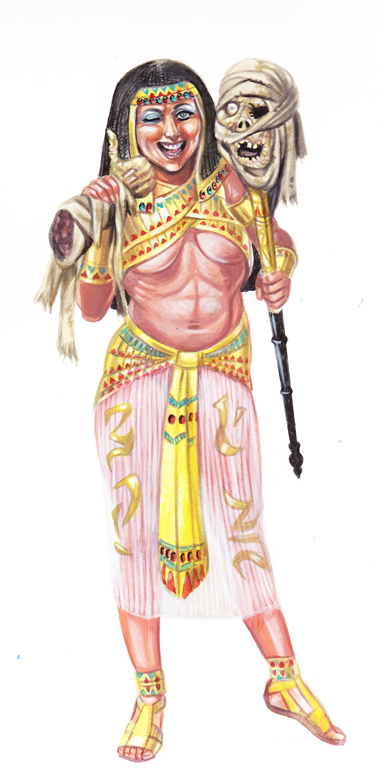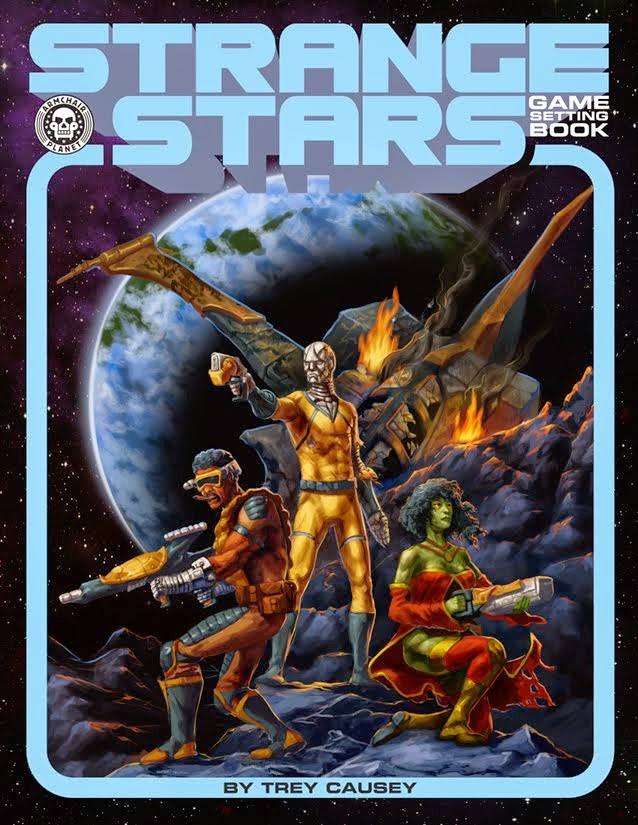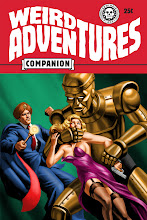 |
| Art by Jim Holloway |
Over the weekend I was reading Hero A Go-Go by Michael Eury. which chronicles superhero comics' response (and influence on) 1960s camp pop culture. It's a combination that didn't always work well; many of the works perhaps now seem more goofy kitsch, and some are really just unfunny parody or of superheroes. Still, when it works there is a certain charm to a lot of folks, as the revival comics Batman '66 and Wonder Woman '77 indicates.
I wonder why there hasn't been as much of concerted attempt at published camp works in Dungeons & Dragons? Certainly, farcical humor abounds at the gaming table, and a number of comedic adventures have been written (a lot illustrated by Jim Holloway), and there are humorous illustrations in the older AD&D books. But as far as I know their has never been a camp setting or camp-informed setting--unless maybe HackMaster counts? Maybe it's just too difficult a tone to sustain well throughout a written project?
The settings of some OSR-related folks seem to me to have elements of camp without going all-in: Jason Sholtis' Operation Unfathomable, Chris Kutalik's Hill Cantons, some of Jeff Reints stuff, and my own Mortzengersturm. Dungeon Crawl Classics with its "airbrushed wizard van" elements could be taken as camp, but I'm unsure whether that is the intention.
 |
| Art by Jim Holloway |







4 comments:
TSR's Castle Greyhawk parody may have been an attempt, but the underlying viciousness ruined it.
There is no question that gaming can be funny, but it can be dangerous to bake jokes right into a setting or adventure. Gaming comedy is spontaneous. When the jokes are in the published material, it can come off as the GM reading to the group from a book of riddles while the players sit and listen.
I came to realize this when I ran the brilliant Ghostbusters RPG that Petersen, Stafford and Willis put out. When I first got the boxed set, I was running my own adventures. The game encouraged you to set the game in your hometown. I ran somewhat offbeat hauntings with most of the humor coming from the players approach and the mishap heavy system. We had a great time with it.
Later I acquired published adventures for the game and tried running them. Fifteen-year-old me thought they were hilarious. They fell completely flat at the table. They were full of wacky pop culture references and every NPC was a joke. I was throwing all this canned humor at the group, often in flavor text form, as the group. It prevented any of the spontaneous humor of our earlier sessions, and I learned a valuable lesson.
There is certainly room for whimsy and camp in published materials, but its a subtle line. I think your products and those for DCC pull it off. They set a tone that encourages that can encourage the players to camp it up a little, but they don't drown them in it.
I have a feeling camp would work in a one-shot, but it might be difficult in a more sustained project. I can see it being delightful in the short term, but it might get old long-term. Unless maybe it's being used sparingly as ornamentation, rather than foundation. But that also might be a question of taste as well.
@adam - I agree. I think farce or broad humor is easy to achieve at the table, but difficult to write into products and have it work. Subtlety works best, setting up potentially humorous situations and characters is better than going for the joke.
@Chris - A campaign is going to cover a lot of moods, I think. I think you're right that you wouldn't want camp was broad that things always had to be funny.
Post a Comment